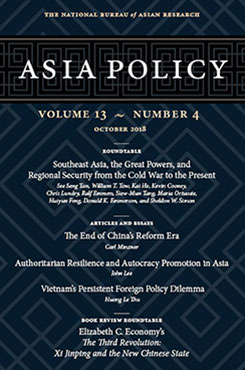The End of China's Reform Era
This essay examines recent developments suggesting that China’s post-1978 reform era has ended and assesses the economic, ideological, and political implications.
EXECUTIVE SUMMARY
MAIN ARGUMENT
The late 1970s saw Chinese leaders steer their country out of the chaos and stagnation of the Maoist era, launching the policies of “reform and opening up.” In subsequent decades, domestic Chinese politics were marked by three core factors: (1) rapid economic growth, (2) ideological openness, and (3) relative political stability as the result of partially institutionalized norms, such as those governing the retirement and succession of top Chinese Communist Party (CCP) leaders. However, all of these factors are ending. Foreign media coverage has focused on recent elite political developments, such as the CCP’s proclamation of a “new era” under Xi Jinping and the removal of constitutional term limits on his role as president. But these developments are the culmination of much deeper shifts dating back to the early 2000s—with even older roots. Recent events merely illustrate how these trends have steadily deepened over the last two years.
POLICY IMPLICATIONS
- In the short term, policymakers should expect China to evolve in the direction of a harsher and more personalized authoritarian system.
- In the medium to long term, China will likely experience a revival of the sources of domestic political instability that marked the pre-1978 era—elite political turmoil, escalating social conflict, and rising ethno-nationalist sentiment directed at minorities and foreigners alike.
- Beijing’s interest in increasing its economic and diplomatic influence overseas will continue unabated, with Chinese-language media and ethnic Chinese communities outside China as the first targets. Foreign firms and entities operating within China should also expect an increasingly unfavorable ideological and political climate.
- Democratic countries should respond to Chinese pressure by reaffirming their liberal democratic values rather than giving into the nativist sentiment currently sweeping many Western nations.
Carl Minzner is a Professor at Fordham University School of Law, specializing in Chinese law and governance. He is the author of End of an Era: How China’s Authoritarian Revival Is Undermining Its Rise (2018).
About Asia Policy
Asia Policy is a peer-reviewed scholarly journal presenting policy-relevant academic research on the Asia-Pacific that draws clear and concise conclusions useful to today’s policymakers. Asia Policy is published quarterly in January, April, July, and October and accepts submissions on a rolling basis. Learn more


